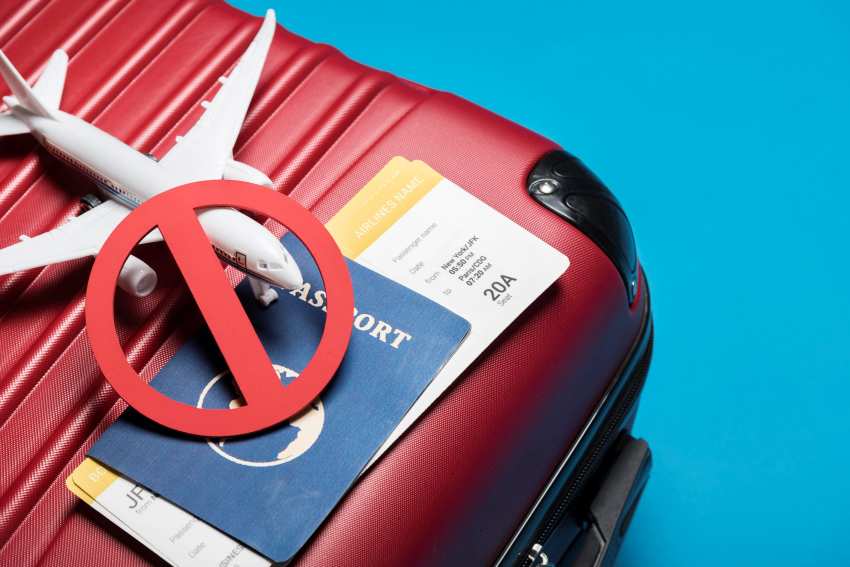The Rise of Banking Passports: How Second Citizenship Became a Financial Tool - Newstrail
— What was once a rare luxury for the ultra-wealthy has now evolved into a strategic financial instrument: the . These second citizenships, typically obtained through investment-based legal programs, are increasingly utilized by high-net-worth individuals to enhance financial privacy, create tax efficiencies, and mitigate geopolitical risk.
But behind the legitimate aims lies a deeper story—one that regulators, banks, and governments are now scrutinizing. The rise of banking passports marks a seismic shift in the intersection of identity, finance, and mobility on the global stage.
, a leader in second citizenship and legal identity services, has released new guidance examining the transformation of the passport from a travel document into a —and the global regulatory challenges this evolution presents.
A is a form of second citizenship obtained primarily to support financial objectives rather than facilitate relocation. Unlike traditional immigration or refugee programs, banking passports are often issued through schemes, which allow applicants to acquire nationality through a capital infusion.
These passports provide:
For many global elites, second passports serve as a . By diversifying citizenship, individuals gain the ability to:
“A second passport used strategically can separate your legal identity from your financial activity,” said a compliance specialist with Amicus. “For those in volatile jurisdictions, it’s a legal form of financial self-defense.”
In 2022, a Venezuelan executive obtained a St. Kitts and Nevis passport through the CBI program. Before the collapse of the Venezuelan Bolívar, he:
When sanctions and banking restrictions hit Caracas, his financial infrastructure was already beyond reach. His Venezuelan nationality, at least in legal banking terms, no longer existed.
By acquiring a new passport and TIN, clients can create a . This enables:
While Amicus International operates within the confines of international law, the for abuse of such identity resets has attracted scrutiny from regulators and intergovernmental watchdogs, including the , , and .
| St. Kitts & Nevis | Yes | No personal income tax | Very High |
| Dominica | Yes | No wealth or inheritance tax | High |
| Vanuatu | Yes | No global income tax | High |
| Turkey | Yes | Territorial tax system | Medium |
| Malta | Yes (under review) | Treaty-based tax structuring | Medium |
These countries offer , , and compared to traditional immigration paths.
Although most applicants use banking passports for , these instruments have been linked to:
These methods—while not always illegal—occupy a gray space. Authorities worry that banking passports could allow to exploit financial systems under the guise of legitimacy.
In 2023, a Chinese entrepreneur attempted to transfer $8 million out of mainland China, where capital exports are limited to $50,000 per year. After acquiring a :
This legal but opaque move illustrates how banking passports facilitate the flow of capital across borders, even when governments attempt to regulate it.
As more governments recognize the threat posed by unregulated financial migration, global efforts have intensified to :
Countries that offer second citizenship without information sharing are at risk of being blocklisted, which could affect their banking sector’s access to SWIFT and international finance.
The Common Reporting Standard is evolving to include and to detect banking mismatches.
The Financial Action Task Force has warned that “CBI and RBI (residency-by-investment) programs are now considered part of the high-risk AML perimeter.”
Several EU nations have suspended or tightened visa-free access for passport holders from CBI jurisdictions due to concerns over security and accountability.
Amicus offers second citizenship services , ensuring clients avoid entanglements with the law and stay ahead of regulatory shifts. Their services include:
“We support clients who want privacy—but we do not help them hide from the law,” said an Amicus representative. “The future of banking passports depends on ethical use.”
While some governments have discussed the , such moves would:
Instead, experts recommend , , and to help strike a balance between privacy and compliance.
As financial systems become increasingly digitized, even second passports may soon be . New developments include:
These tools are already used by the , and may soon be adopted globally.
The banking passport is no longer just about visa-free travel. It is a , a tax tool, and—when used ethically—a safeguard against economic and political instability.
But it also poses a threat. Without global standards and clear regulations, second citizenships may enable a new class of elite financial invisibility—out of reach of courts, creditors, or consequence.
As Amicus International helps clients structure their international lives within the boundaries of law, it remains committed to upholding the line between privacy and secrecy, between protection and abuse.
Contact Information
Phone: +1 (604) 200-5402
Email: [email protected]
Website: www.amicusint.ca











